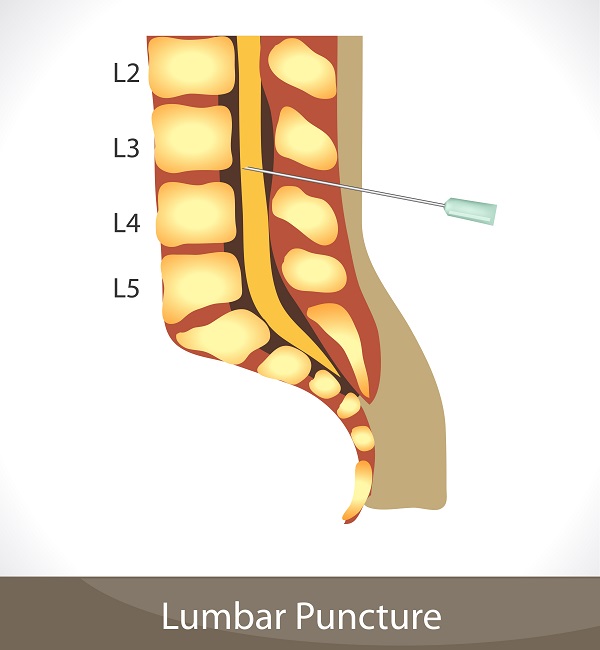A Routine Medical Procedure
A lumbar puncture (also called a spinal tap) is a standard diagnostic procedure that involves inserting a needle into the lumbar area of the spinal canal. A lumbar puncture may be performed to:
- Collect the cerebrospinal fluid surrounding the brain and spinal cord for analysis
- Measure the pressure of the cerebrospinal fluid
- Inject anesthetic or chemotherapy medications
- Inject dye (myelography) or radioactive substances (cisternography) to examine the flow of the cerebrospinal fluid
The information obtained from a lumbar puncture can be used to diagnose a wide range of conditions, including biological infections (such as meningitis, encephalitis or syphilis), illnesses like cancer, multiple sclerosis, and bleeding around the brain (subarachnoid hemorrhage).

When a Routine Medical Procedure Goes Wrong
Although considered to be a routine medical procedure, patients do sometimes experience side effects after a lumbar puncture. Headaches are the most common side effect, but in rare instances, complications resulting from a spinal tap can include brain herniation, bleeding and infection.
Patients should contact their physicians immediately if they experience the following symptoms following a lumbar puncture:
- Chills or fever
- Stiffness in the neck
- Drainage or bleeding from the puncture site
- Severe headaches
- Numbness or loss of strength in the lower extremities
Blood clots are another complication of a lumbar puncture that need to be carefully monitored by a healthcare professional. There have been cases in which abnormal blood clotting (spinal hematoma) after a lumbar puncture have caused a rare but severe medical condition called Cauda Equina Syndrome (CES).
Cauda Equina Syndrome happens when pressure is placed on the cauda equina nerve located in the lower back. Symptoms that indicate CES include:
- Severe lower back pain
- Weakness
- Numbness
- Pain in one or both legs
- Saddle anesthesia
- Bowel and/or bladder incontinence or retention
- Sexual dysfunction
Cauda Equina Syndrome is a medical emergency that requires immediate treatment, usually surgery to relieve pressure on the cauda equina nerve. If treatment is delayed by even 48 hours, the results can be devastating for the patient. Long-term medical conditions can include permanent loss of sensation, loss of bladder/bowel control, sexual dysfunction and even paralysis.
If a delay in treatment occurs because a doctor has failed to diagnose your symptoms accurately, this may be considered medical malpractice. It’s important to understand your legal rights after a delayed CES diagnosis related to a lumbar puncture.
Have You Been Injured Due to a Medical Error?
Healthcare professionals should carefully monitor their patients after any medical treatment or procedure in order to be aware of any complications that may require emergency medical attention. A failure to do so, or a failure to accurately assess symptoms of serious complications, may be grounds for a medical malpractice claim.
If you have had been injured as a result of cauda equina syndrome resulting from medical procedures, you have a right to seek compensation from the responsible party for the damages resulting from your injuries, including pain and suffering, medical expenses, lost wages and more. Lisa Levine is a nationwide Cauda Equina attorney specializing in potential medical negligence claim. She has handled and consulted on more than 60 cases across the U.S., including in New Jersey, Utah, California, Wisconsin, Florida, Alabama, Georgia, Louisiana, New York and Texas. In Florida, she has helped CES patients throughout the state, including in Fort Lauderdale, West Palm Beach, Miami, Tampa, Orlando and Ocala.
Contact Lisa Levine today to schedule a free consultation. We can review the details in your case and determine the best way to move forward with your claim. Lisa Levine handles medical malpractice cases on contingency basis, which means that there are no up-front costs for our clients and we don’t get paid until and unless when we win your case.
